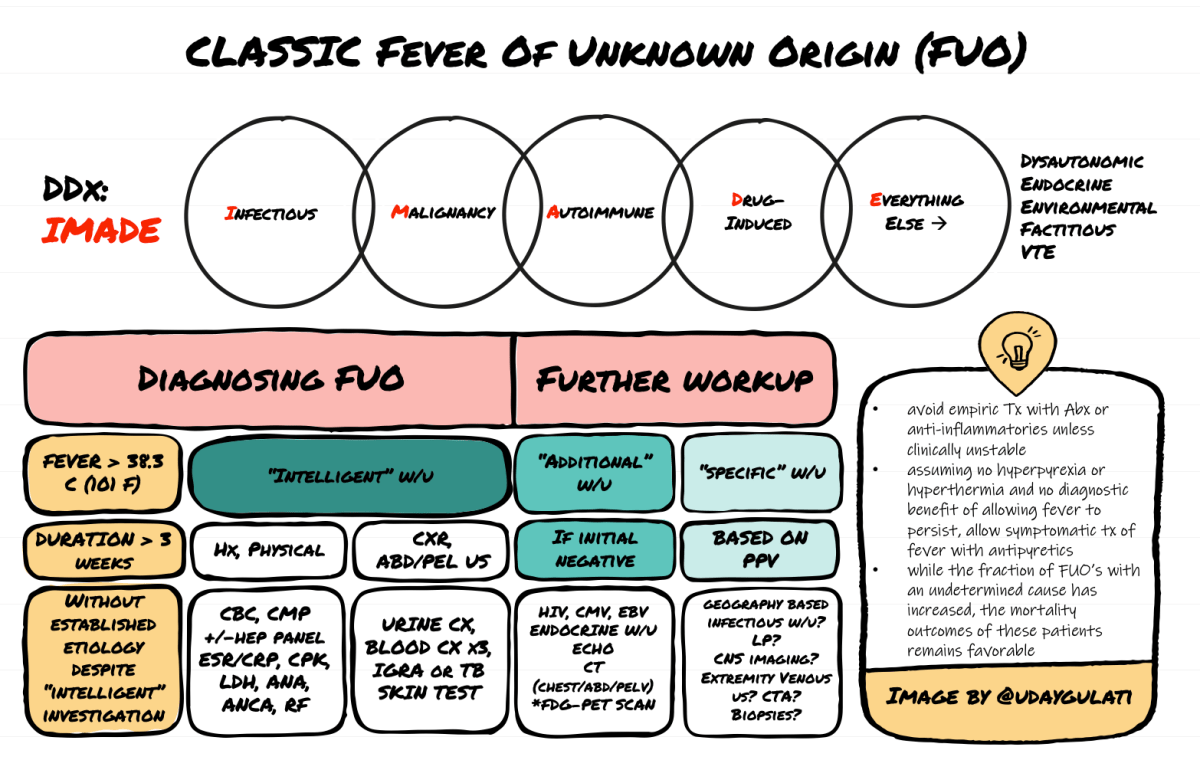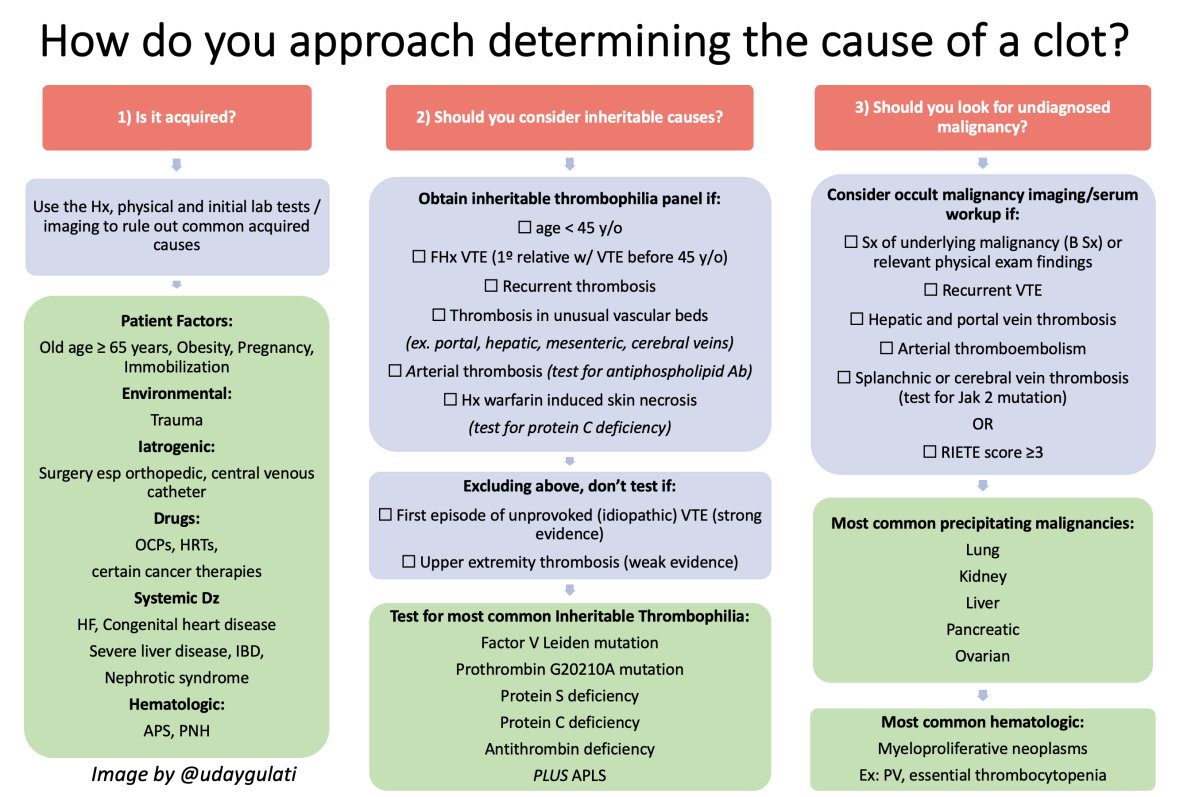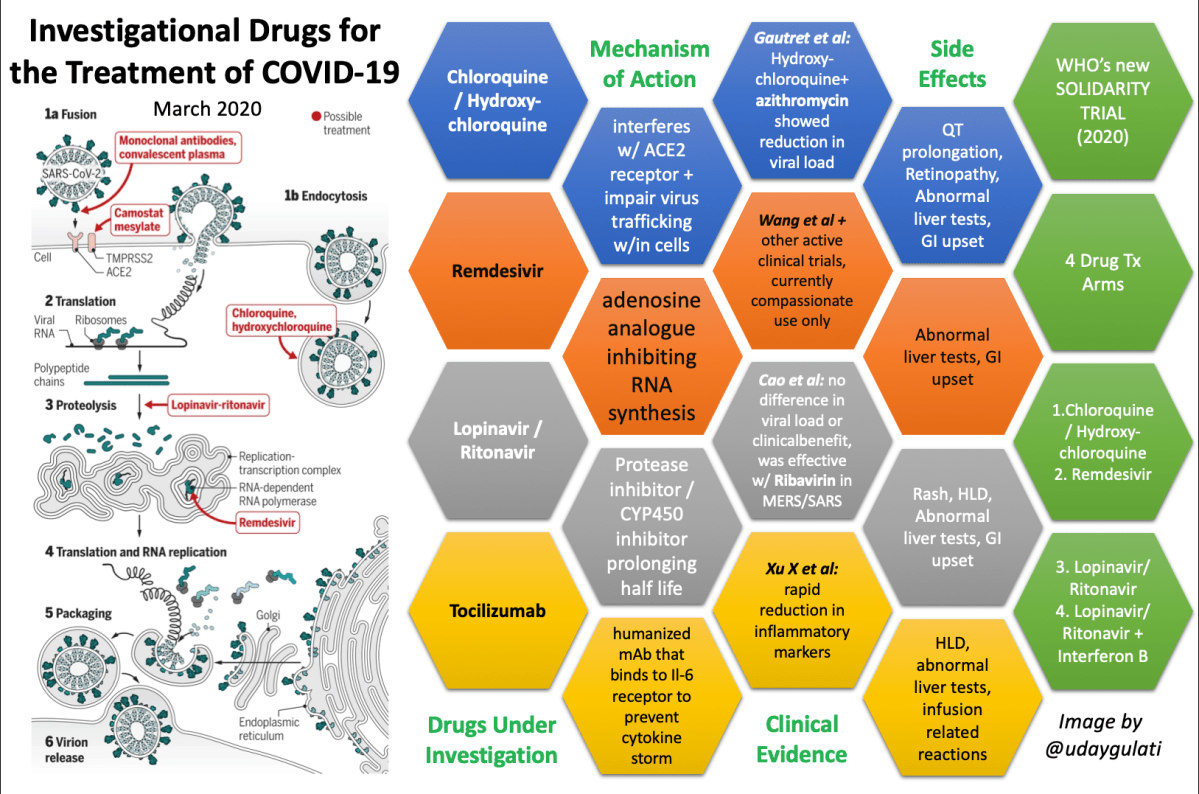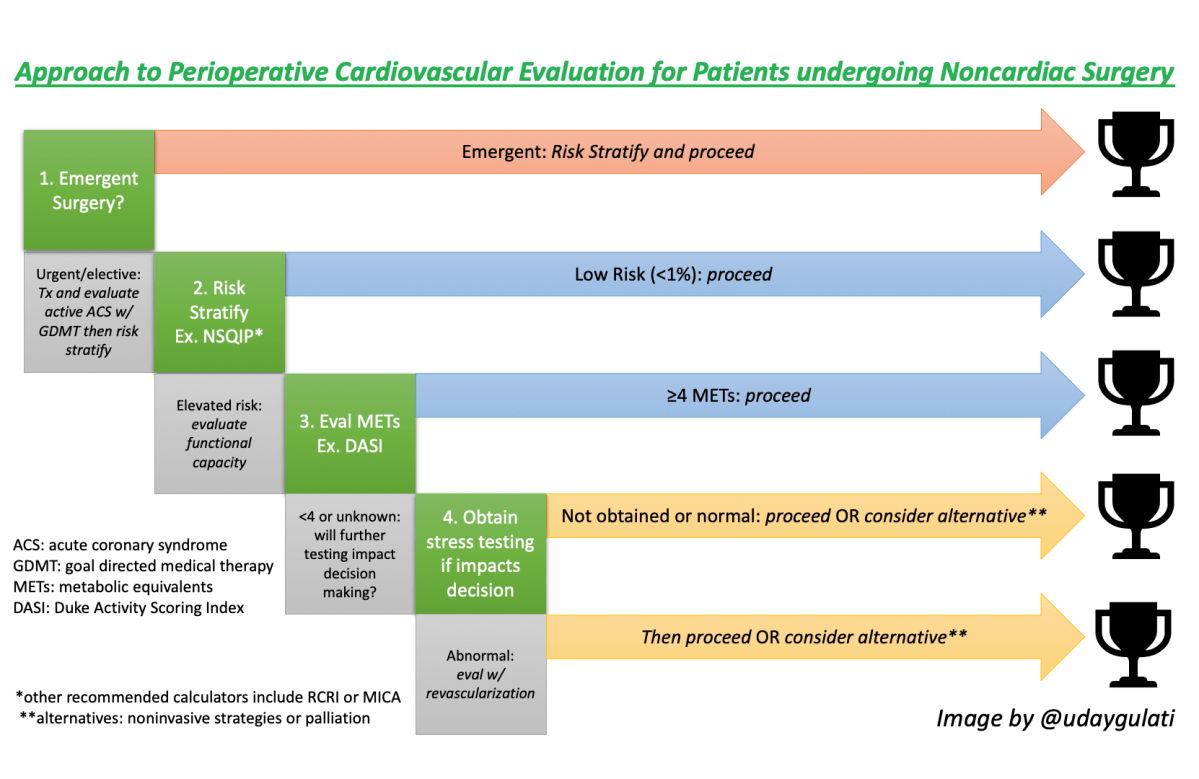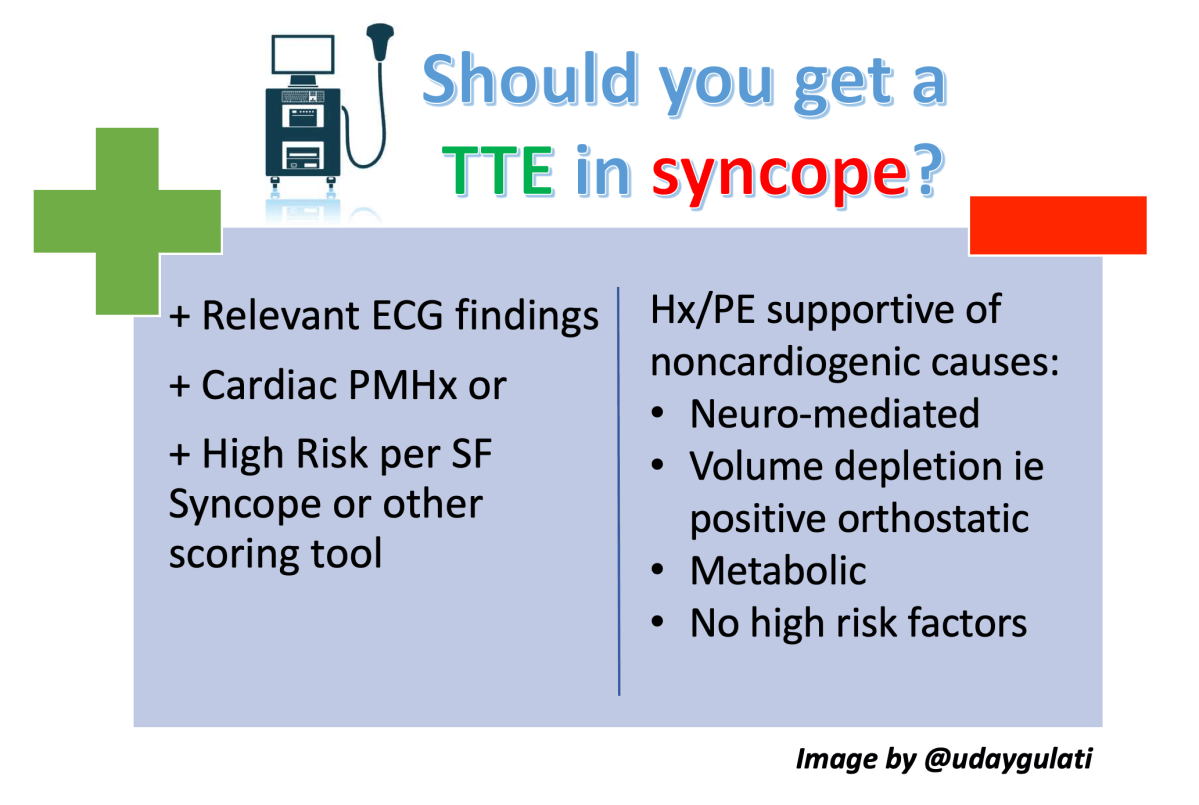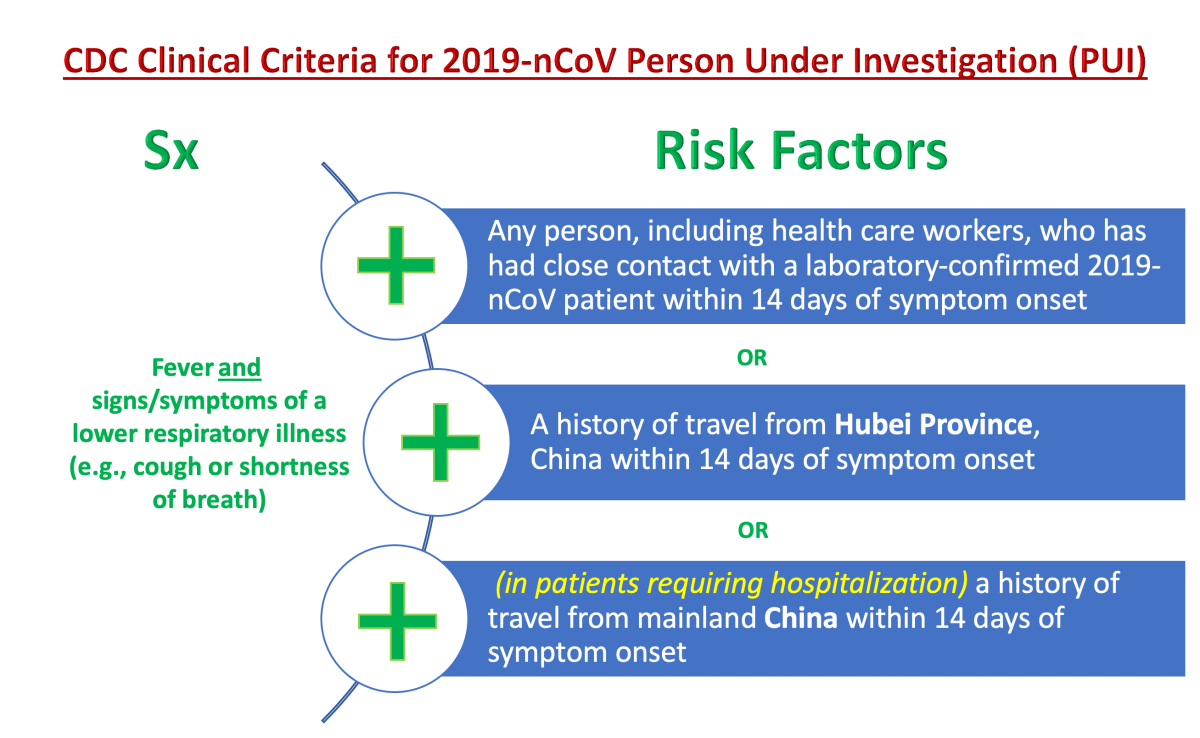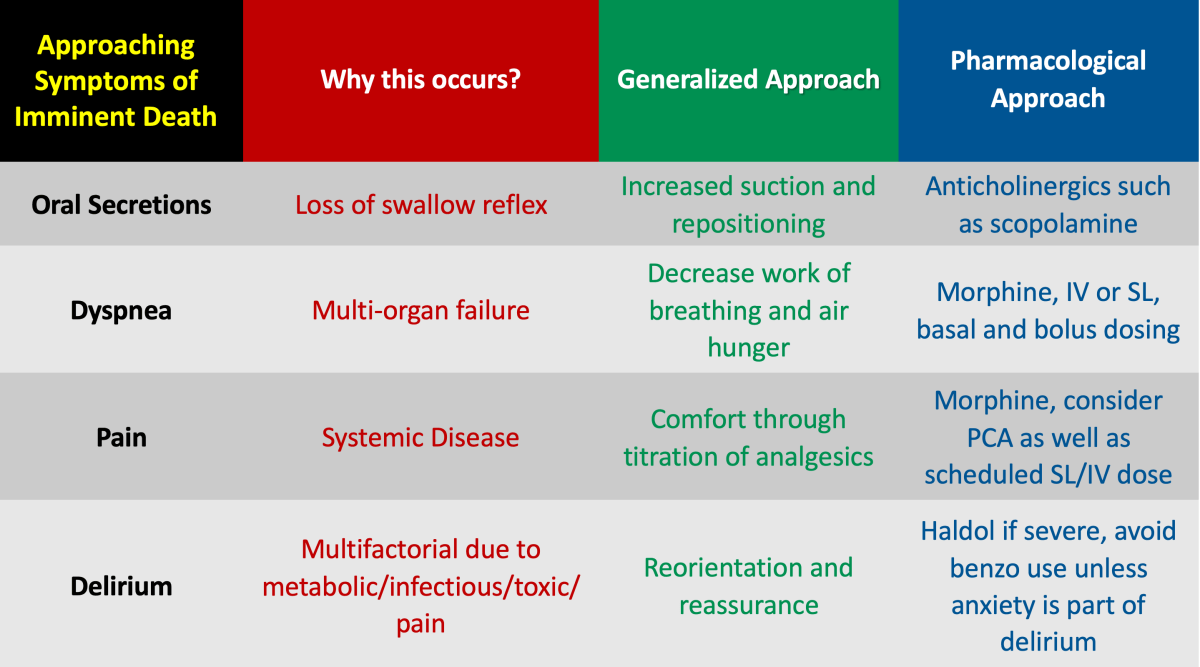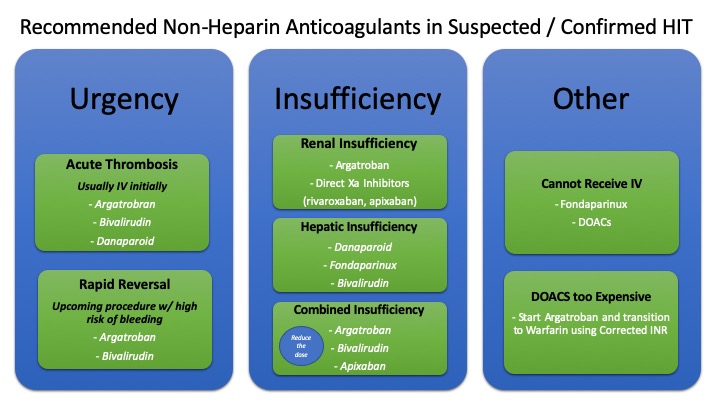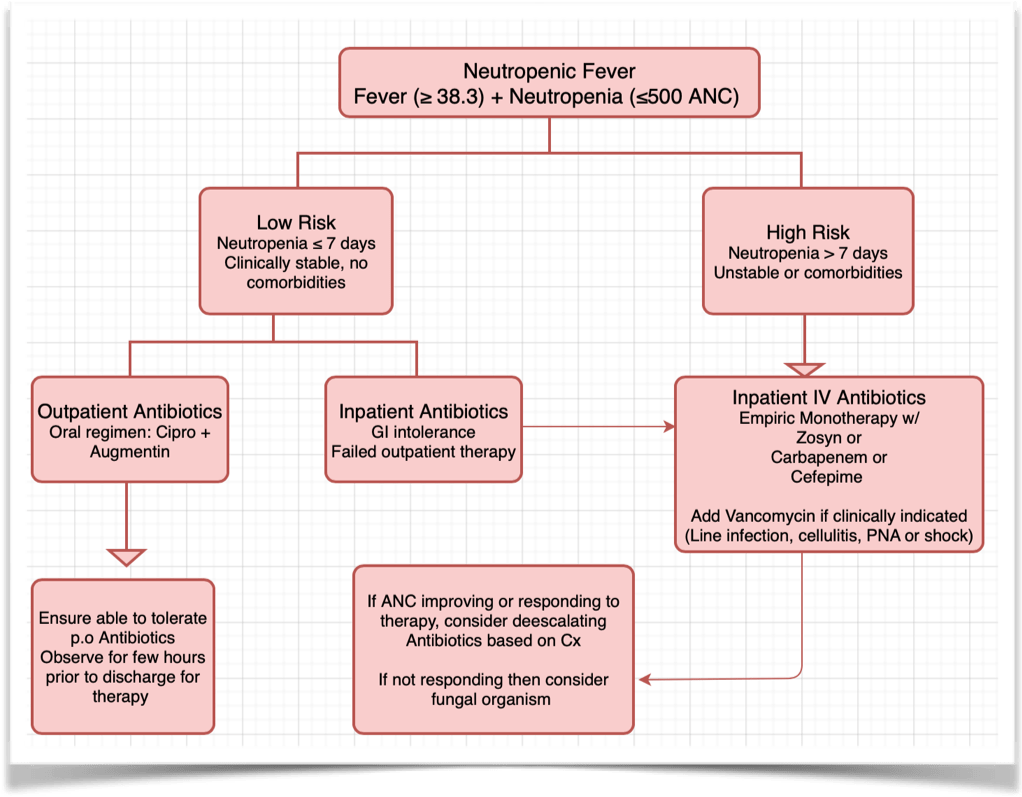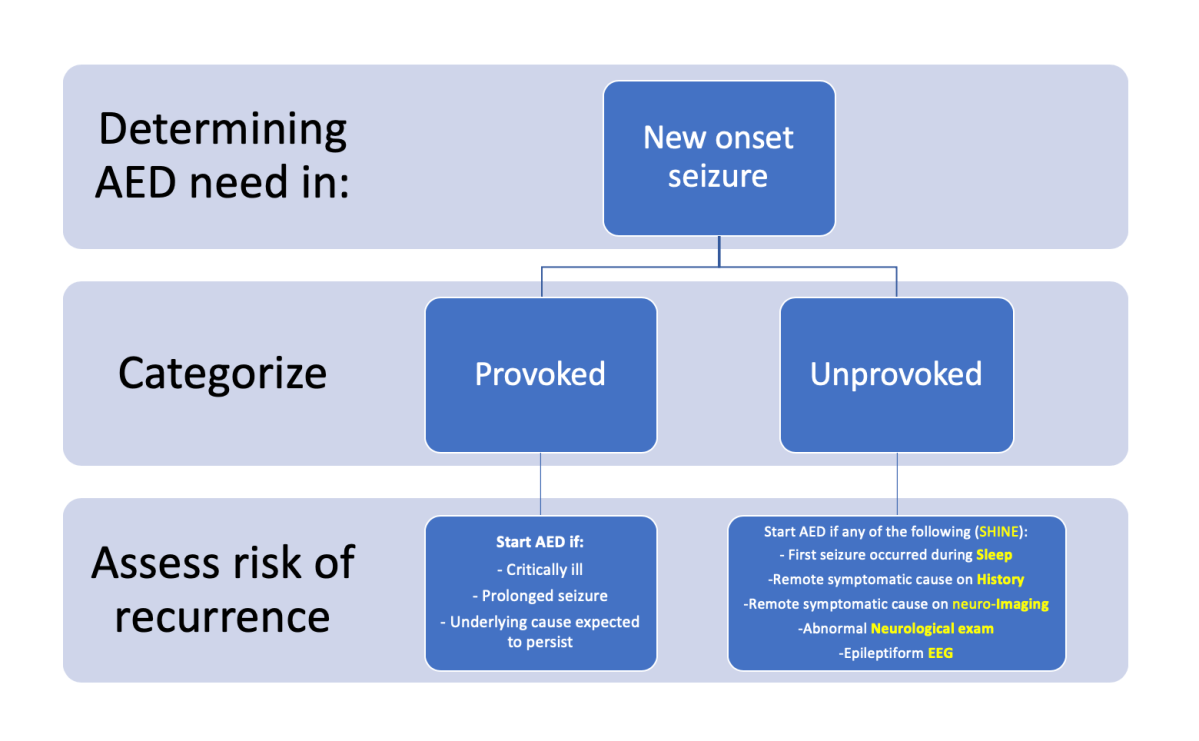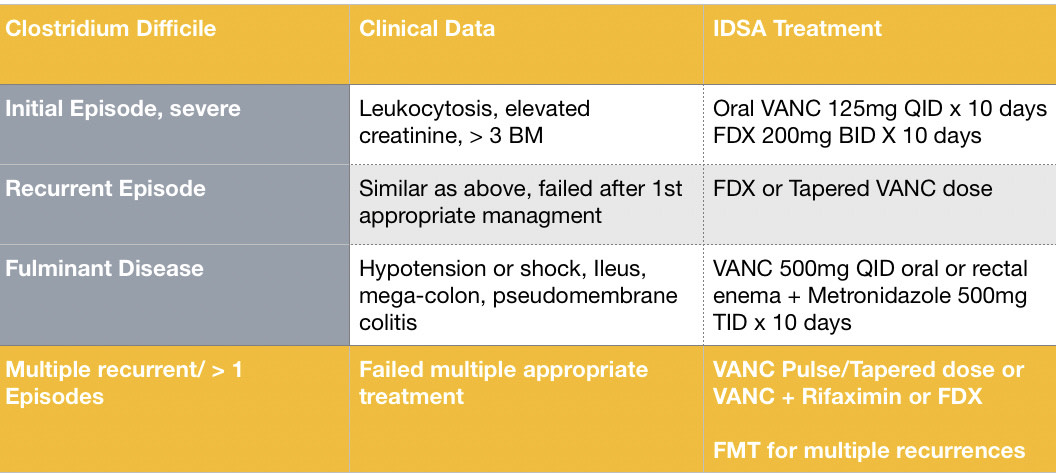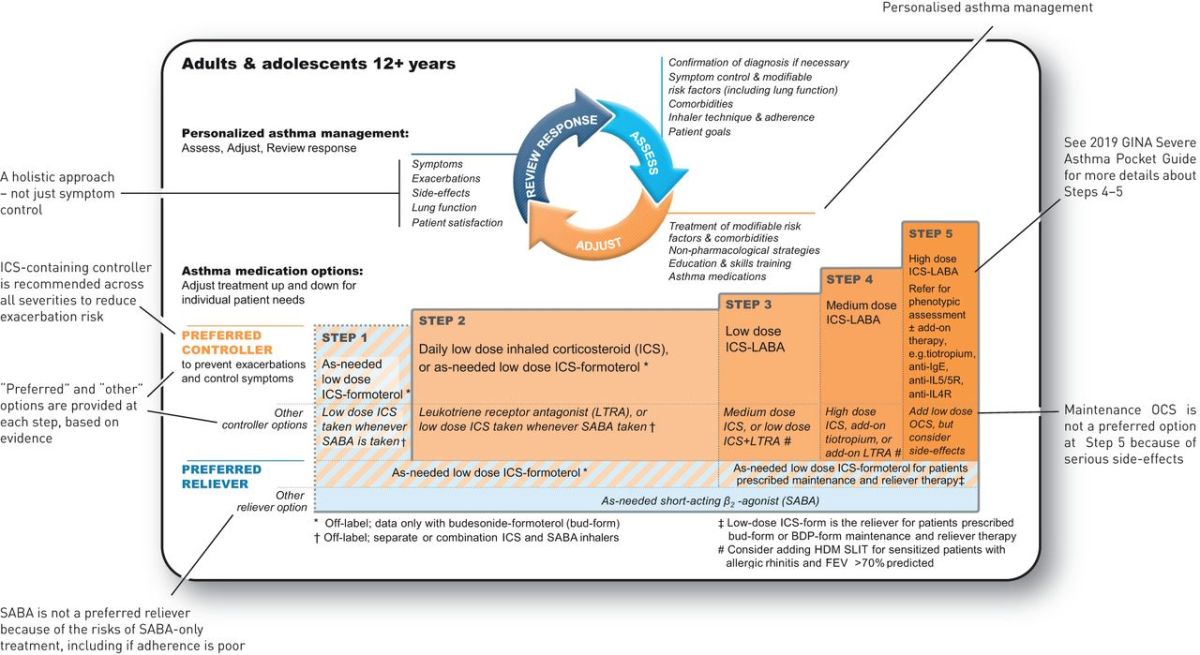
Welcome to Inspira Vineland IM’s MedEd Blog!
IM Residents passionate about Medical Education and #MedTwitter.
Posts are our own and do not replace medical advice.
Latest Posts
How do you work up a CODE CVA?
A 63-year-old female with significant PMhx HTN, HLD, IDDM, CAD has been in the hospital for 3 days for uncontrolled hyperglycemia. The patient’s nurse calls you at 8 PM and reports patient appeared acutely altered. You are on your way when the pager goes off, it’s a CODE CVA in that patient’s room. Upon examination,…
What are indications for a permanent pacemaker?
An 81-year-old male with significant past medical history of CAD s/p single-vessel CABG, aortic stenosis s/p TAVR, atrial fibrillation on Coumadin presented to the ED after a syncopal episode. He described “blacking out” during ambulation without seizure-like activity. In the ED, he was found to be in sinus bradycardia with a heart rate in the…
How do you work-up FUO?
So you have determined that your patient meets criteria for a fever of unknown origin (FUO). How? See Part 1 of this post. Now how do you further work up FUO and rule out a broad list of differentials? What about antipyretic, anti-inflammatory or antibiotic management in the interim? Let’s dive in. Recall the “intelligent”…
How do you define FUO?
You are evaluating a 55-year-old male with significant past medical history of non-insulin diabetes, recently treated Lyme disease, and immigrant from India 25 years prior who is presenting with a 2-week duration of persistent fevers, chills, malaise and myalgias. After a week inpatient with an overall negative microbiology and rheumatologic work-up, his fevers are persistent…
When do you perform a hypercoagulable workup?
A 23-year-old female w/ no significant PMHx presents with SOB and RLE pain. She describes it as sudden onset and pleuritic. She does not take any medications including hormonal birth control. She denies any recent surgical history. She is unaware of any family history of clotting or bleeding disorders. Aside from sinus tachycardia, her vitals…
What drugs are being investigated for COVID-19?
A 35-year-old male with history of asthma presents with new onset fever, fatigue and non-productive cough. Her symptoms and workup matched that of a COVID-19 illness script. After being admitted due to some level of respiratory distress and for close monitoring with appropriate airborne precautions, her COVID-19 PCR test comes back positive. You discuss with…
How do you approach enterococcal bacteremia?
You are on the wards taking care of a patient that was admitted for sepsis. The infectious source was unclear. He may have had a slight infiltrate suggesting a pneumonia. His urine was clean. His CT thorax and abdomen was unremarkable. After overall stability for two days, his initial blood cultures obtained in the ED…
How do you evaluate patients before surgery?
A 70-year old female presents to the ED for evaluation of left hip pain after a mechanical fall. X-ray shows a nondisplaced femoral neck fracture. After bedside evaluation, the Orthopedic team would like to plan for surgical correction with open reduction internal fixation (ORIF). Her past medical history is significant for CAD s/p 3-vessel CABG…
How do you evaluate dyspepsia?
“Doctor, my tummy is bloated. I think it’s heartburn. It’s been going on for months. What’s causing it?” Good question. Let’s dive in. What is dyspepsia? Upper abdominal pain or discomfort originating in the upper GI tract that is episodic or persistent and often associated with belching, bloating, heartburn, and nausea or vomiting. What is…
When do you need an echo when evaluating syncope?
A 45-year-old male with history of hypertension presents to the emergency department complaining of abrupt onset dizziness that occurred when he stood from a seated position, the dizziness was accompanied by nausea and lightheadedness as well as a brief period of blacking out when the patient fell backward into his chair. He has never experienced…
How do you approach ischemic colitis?
A 72 y/o F being managed on the floor for sepsis due to a problematic urinary tract infection starts to complain of acute onset LUQ abdominal pain. She describes abdominal pain out of proportion to your physical exam, one that includes mild signs of distension without peritoneal signs. She now has occult blood in the…
How do you workup hemolytic anemia?
A 42 year old female without history of cirrhosis or renal impairment presents with fatigue and slight yellowing of her skin. She denies any weight loss and shows no evidence of blood loss. Her labs show normocytic anemic with an elevated indirect bilirubin. Otherwise, her comprehensive metabolic panel is relatively unremarkable. Weakness. Jaundice. Anemia. Indirect Hyperbilirubinemia.…
Are you prepared to discuss the novel Coronavirus?
By now we should have all heard the news. The novel coronavirus, recently labeled by the WHO as COVID-19 (COrona VIrus Disease 2019), outbreak has caused more deaths than SARS and continues to have a growing incidence of infection in the US. In fact on January 30, 2020 the WHO declared the outbreak a public health emergency of international concern (PHEIC).…
How can we help our dying patients?
The time has come. We have exhausted our resources. We have given our very best effort. We have decided that it is in our patient’s best interests to pursue the path of comfort rather than continued intervention. We are now faced with the question that many of us are undertrained and uncomfortable to answer: how…
How do you treat HIT?
On a recent post (When are you concerned about HIT?), we reviewed what you do when suspecting Heparin-induced thrombocytopenia (HIT). Recall, we talked about the mechanism, the clinical presentation, the risk factors, risk stratification and the workup. Pretty informative IMO. So as promised, here is part II, how do you treat HIT? Who do you treat?…
Who gets an AICD in ischemic cardiomyopathy?
A 56-year-old woman with a history of hypertension and COPD experiences a sharp chest pain and acute dyspnea. An emergency medical team was activated, was found to be in Ventricular Fibrillation and the VF was successfully defibrillated with an automatic external defibrillator. The patient was taken to a cardiac care unit by the emergency medical…
How do you approach antibiotics in febrile neutropenia?
There are few oncologic emergencies that require an understanding of management at your fingertips. The approach to antibiotics for neutropenic fever is relatively simple so let’s review, starting with some basics. DEFINITIONS What is defines ‘Fever’ and ‘Neutropenia’ in Neutropenic Fever? Fever ≥ 38.3 or ≥ 38 sustained over 1 hour period. Avoid axillary temperatures…
Do you start AEDs on a first time seizure?
A 36 y/o male with PMHx of IDDM is admitted to ICU for DKA and subsequently has a first time seizure. After resolution of what does appear to be a seizure and not a convulsive syncopal event, do you start this patient on an anti-epileptic drug (AED)? This answer is one of a few questions…
How do you approach TLS?
Tumor Lysis Syndrome (TLS) is one of the need-to-know oncologic life-threatening emergencies. Let us dive into a quick review of what you need-to-know. What is the pathophysiology of TLS? Destruction of tumor cells due to a high tumor cell proliferation rate / large tumor burden resulting in high cell turnover rates destruction from chemotherapy (usually…
For PAD, what is the recommended antithrombotic therapy?
Before diving into the latest recommendations on antithrombotic therapy management of Peripheral Arterial Disease (PAD), a quick review: Diagnosis of Lower Extremity PAD The vascular testing work up varies based on whether they are symptomatic or asymptomatic. For Asymptomatic, use a formal Ankle-Branchial Index (ABI) to confirm (more Sn/Sp than a bedside ABI for assessing…
When are you concerned about HIT?
You are reviewing your morning labs and the platelet count is awfully low. You start working through your differentials for thrombocytopenia and as you go through your list, you consider Heparin-induced thrombocytopenia (HIT). You glance over the medication administration record and there it is, your patient has been getting heparin. So should you be concerned…
How do you manage C. Difficile Infections?
Diagnosis Q. When do you suspect a Clostridium Difficile Infection (CDI)? Symptoms of unexplained and new onset ≥3 unformed stools in 24 hours plus high clinical suspicion. ex. Recent use of certain antibiotics increases risk for CDIs. Q. What is the best diagnostic test/method for C Difficile? Stool toxin + NAAT; GDH + toxin Q.…
How are we managing CAP in 2019?
In 2019, the American Thoracic Society/Infectious Disease Society of America (ATS/IDSA) revised their guidelines towards the evaluation and management of Community Acquired Pneumonia (CAP). Regardless of the criticisms regarding the quality of evidence, there are quite a few recommendations I think are worth noting for my co-residents. Evaluation First, recall 2007 recommendations on classifying CAP…
How are we managing Asthma in 2019?
A study published in NEJM May 2019, Controlled Trial of Budesonide-Formoterol as Needed for Mild Asthma, contributed to a major change in the Global Initiative of Asthma (GINA) recommendations. Brief Study Overview This was a 52-week, randomized, open-label, parallel-group, controlled trial which was conducted at 16 trial centers in New Zealand, UK, Italy and Australia.…
What are we sharing?
Success is not the key to happiness. Happiness is the key to success. If you love what you are doing, you will be successful. — Albert Schweitzer Dear Readers, Thank you for visiting Inspira MedEd: Inspira’s Internal Medicine Resident Education Blog! As part of the new year (2020), I am excited to bring this new…


